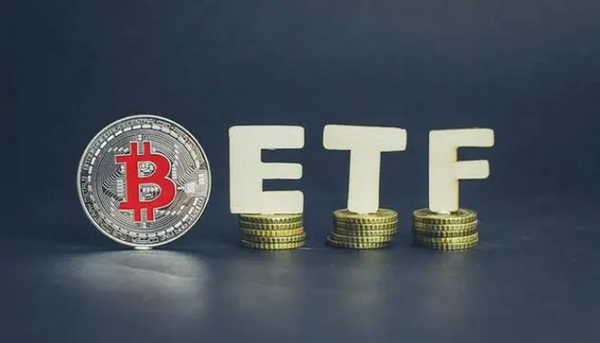-
 Bitcoin
Bitcoin $85,181.4576
0.55% -
 Ethereum
Ethereum $1,600.7372
0.98% -
 Tether USDt
Tether USDt $0.9999
0.01% -
 XRP
XRP $2.0883
0.92% -
 BNB
BNB $592.4828
0.74% -
 Solana
Solana $138.7084
2.67% -
 USDC
USDC $0.9999
0.00% -
 Dogecoin
Dogecoin $0.1590
2.50% -
 TRON
TRON $0.2418
-1.18% -
 Cardano
Cardano $0.6301
2.59% -
 UNUS SED LEO
UNUS SED LEO $9.3588
1.36% -
 Chainlink
Chainlink $12.8630
1.65% -
 Avalanche
Avalanche $19.5072
1.68% -
 Stellar
Stellar $0.2468
2.21% -
 Toncoin
Toncoin $2.9911
-0.01% -
 Shiba Inu
Shiba Inu $0.0...01220
2.08% -
 Hedera
Hedera $0.1663
0.29% -
 Sui
Sui $2.1506
1.41% -
 Bitcoin Cash
Bitcoin Cash $338.3770
2.53% -
 Hyperliquid
Hyperliquid $18.1017
6.61% -
 Polkadot
Polkadot $3.7270
1.24% -
 Litecoin
Litecoin $76.2040
0.93% -
 Dai
Dai $1.0000
0.02% -
 Bitget Token
Bitget Token $4.4577
2.21% -
 Ethena USDe
Ethena USDe $0.9992
0.02% -
 Pi
Pi $0.6468
6.09% -
 Monero
Monero $212.8810
-1.80% -
 Uniswap
Uniswap $5.2693
1.19% -
 Pepe
Pepe $0.0...07270
1.33% -
 OKB
OKB $50.7701
1.10%
what is bitcoin etf spot
Unlike traditional ETFs that invest in futures, a Bitcoin ETF spot holds actual Bitcoin, providing investors with direct exposure to price fluctuations.
Oct 18, 2024 at 07:00 pm

What is Bitcoin ETF Spot?
A Bitcoin ETF (exchange-traded fund) spot is a type of investment fund that tracks the spot price of Bitcoin. Unlike traditional ETFs, which typically invest in futures contracts, a spot ETF holds actual Bitcoin in its portfolio. This means that investors who purchase shares in a spot ETF are directly exposed to the price fluctuations of Bitcoin.
How Does a Bitcoin ETF Spot Work?
- Investment Basket: A Bitcoin ETF spot typically consists of a basket of Bitcoin investments that are held in a custodial account. The custodian is a regulated financial institution that is responsible for the safekeeping of the Bitcoin.
- AUM-Backing: The value of the ETF is backed by the net asset value (NAV) of the underlying Bitcoin investments. This means that the ETF's share price will fluctuate in line with the spot price of Bitcoin.
- Share Issuance and Redemption: Investors can purchase and redeem ETF shares through a brokerage account. When shares are purchased, the ETF will use the proceeds to acquire more Bitcoin investments. When shares are redeemed, the ETF will liquidate a portion of its Bitcoin holdings to meet the redemption request.
Benefits of Bitcoin ETF Spot
- Direct Exposure: Spot ETFs provide investors direct exposure to the underlying asset, allowing them to potentially benefit from price appreciation.
- Diversification: ETFs can offer diversification to investment portfolios by providing exposure to an asset class that is not correlated to traditional markets.
- Liquidity: Spot ETFs offer higher liquidity compared to traditional Bitcoin investment methods, such as purchasing Bitcoin directly on exchanges.
Considerations
- Investment Risk: The price of Bitcoin is highly volatile, and spot ETFs carry the same risk. Investors should be prepared to tolerate significant price fluctuations.
- Trading Fees: ETFs may come with expense ratios or other trading fees. Investors should carefully consider the cost structure before investing.
- Custody Concerns: The security of the underlying Bitcoin investments is crucial. Investors should ensure that the custodian for the ETF is reputable and adheres to industry best practices.
Disclaimer:info@kdj.com
The information provided is not trading advice. kdj.com does not assume any responsibility for any investments made based on the information provided in this article. Cryptocurrencies are highly volatile and it is highly recommended that you invest with caution after thorough research!
If you believe that the content used on this website infringes your copyright, please contact us immediately (info@kdj.com) and we will delete it promptly.
- Pi Network reveals 3-phase migration roadmap but provides no timeline or rollout dates.
- 2025-04-19 15:20:13
- Bitcoin's Price Increased to USD 84,000 After a Recent Fall
- 2025-04-19 15:20:13
- Cardano's NFT ecosystem is making waves in the Web3 space, rapidly gaining traction among creators and collectors.
- 2025-04-19 15:15:13
- MicroStrategy CEO Michael Saylor Predicts Bitcoin Price Will Hit $10 Million
- 2025-04-19 15:15:13
- Despite a Recent Rebound Above the Psychological Threshold of $0.60, Cardano (ADA) Remains Under Bearish Pressure
- 2025-04-19 15:10:13
- Oregon's Attorney General Revives SEC's Case Against Coinbase, Raising Concerns About the Future of XRP
- 2025-04-19 15:10:13
Related knowledge

What is the difference in returns between long-term holding of a Bitcoin ETF and holding Bitcoin directly?
Apr 09,2025 at 04:15am
When considering the difference in returns between long-term holding of a Bitcoin ETF and holding Bitcoin directly, it's essential to understand the nuances and factors that affect each investment option. Both approaches have their unique advantages and potential drawbacks, which can significantly impact the overall returns over time. Understanding Bitc...

How is the "roll cost" of a futures Bitcoin ETF generated?
Apr 08,2025 at 01:22pm
The 'roll cost' of a futures Bitcoin ETF is a critical concept for investors to understand, as it directly impacts the performance of the ETF. In this article, we will delve into the mechanics of how the roll cost is generated, exploring the underlying processes and factors that contribute to this cost. Understanding Futures ContractsFutures contracts a...

How can the premium or discount of a Bitcoin ETF be narrowed through an arbitrage mechanism?
Apr 09,2025 at 12:07am
Arbitrage mechanisms play a crucial role in narrowing the premium or discount of a Bitcoin Exchange Traded Fund (ETF). Understanding how these mechanisms work can provide valuable insights into the dynamics of Bitcoin ETFs and their relationship with the underlying asset. This article will delve into the specifics of how arbitrage can be used to align t...

What factors affect the bid-ask spread of a Bitcoin ETF?
Apr 08,2025 at 08:50pm
The bid-ask spread of a Bitcoin Exchange Traded Fund (ETF) is a critical metric that investors and traders closely monitor. It represents the difference between the highest price a buyer is willing to pay (bid) and the lowest price a seller is willing to accept (ask). Several factors influence this spread, and understanding them can help investors make ...

How is the seed capital of a Bitcoin ETF used?
Apr 10,2025 at 02:15pm
The seed capital of a Bitcoin ETF plays a crucial role in the establishment and operation of the fund. This initial investment is used to create the fund's underlying assets, manage operational costs, and ensure the ETF can start trading on an exchange. Understanding how this seed capital is utilized provides insight into the mechanics of Bitcoin ETFs a...

What is the difference between "physically backed" and "synthetic" Bitcoin ETFs in terms of holding assets?
Apr 10,2025 at 04:56pm
Bitcoin Exchange Traded Funds (ETFs) have become a popular way for investors to gain exposure to the cryptocurrency market without directly owning the underlying asset. There are two primary types of Bitcoin ETFs: physically backed and synthetic. Understanding the differences between these two types, particularly in terms of how they hold assets, is cru...

What is the difference in returns between long-term holding of a Bitcoin ETF and holding Bitcoin directly?
Apr 09,2025 at 04:15am
When considering the difference in returns between long-term holding of a Bitcoin ETF and holding Bitcoin directly, it's essential to understand the nuances and factors that affect each investment option. Both approaches have their unique advantages and potential drawbacks, which can significantly impact the overall returns over time. Understanding Bitc...

How is the "roll cost" of a futures Bitcoin ETF generated?
Apr 08,2025 at 01:22pm
The 'roll cost' of a futures Bitcoin ETF is a critical concept for investors to understand, as it directly impacts the performance of the ETF. In this article, we will delve into the mechanics of how the roll cost is generated, exploring the underlying processes and factors that contribute to this cost. Understanding Futures ContractsFutures contracts a...

How can the premium or discount of a Bitcoin ETF be narrowed through an arbitrage mechanism?
Apr 09,2025 at 12:07am
Arbitrage mechanisms play a crucial role in narrowing the premium or discount of a Bitcoin Exchange Traded Fund (ETF). Understanding how these mechanisms work can provide valuable insights into the dynamics of Bitcoin ETFs and their relationship with the underlying asset. This article will delve into the specifics of how arbitrage can be used to align t...

What factors affect the bid-ask spread of a Bitcoin ETF?
Apr 08,2025 at 08:50pm
The bid-ask spread of a Bitcoin Exchange Traded Fund (ETF) is a critical metric that investors and traders closely monitor. It represents the difference between the highest price a buyer is willing to pay (bid) and the lowest price a seller is willing to accept (ask). Several factors influence this spread, and understanding them can help investors make ...

How is the seed capital of a Bitcoin ETF used?
Apr 10,2025 at 02:15pm
The seed capital of a Bitcoin ETF plays a crucial role in the establishment and operation of the fund. This initial investment is used to create the fund's underlying assets, manage operational costs, and ensure the ETF can start trading on an exchange. Understanding how this seed capital is utilized provides insight into the mechanics of Bitcoin ETFs a...

What is the difference between "physically backed" and "synthetic" Bitcoin ETFs in terms of holding assets?
Apr 10,2025 at 04:56pm
Bitcoin Exchange Traded Funds (ETFs) have become a popular way for investors to gain exposure to the cryptocurrency market without directly owning the underlying asset. There are two primary types of Bitcoin ETFs: physically backed and synthetic. Understanding the differences between these two types, particularly in terms of how they hold assets, is cru...
See all articles
























































































